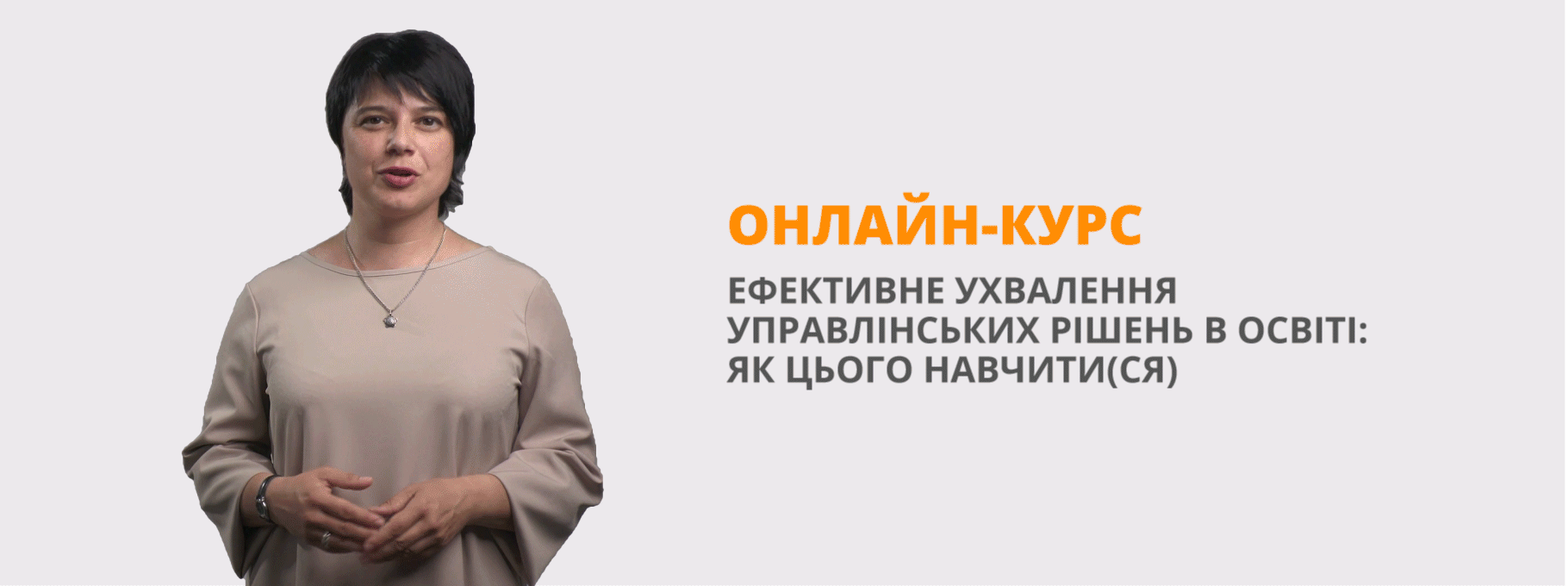Збірник текстів для проведення контролю читання на уроках англійської мови.
Збірник текстів для проведення контролю читання на уроках англійської мови
WHY WE LEARN ENGLISH
![]() People began to speak many centuries ago, and since then they have been speaking different languages. Every language reflects the soul, behaviour and temperament of each nationality. Peoples createdtheir own alphabets and rules, but they always wanted to communicate with each other, to understand and to know more about each other. Languages help people to understand each other better, they help them to solve different economic and political problems, which stands before them, and so people learn foreign languages.
People began to speak many centuries ago, and since then they have been speaking different languages. Every language reflects the soul, behaviour and temperament of each nationality. Peoples createdtheir own alphabets and rules, but they always wanted to communicate with each other, to understand and to know more about each other. Languages help people to understand each other better, they help them to solve different economic and political problems, which stands before them, and so people learn foreign languages.
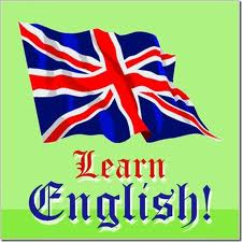 All languages are different. Some are very hard, some are easier, some are similar, but there are no identical languages in the whole world. There are more than 2 700 languages in the world. Many of them are "alive" because people use them, but there are some "dead" languages, for example Latin.
All languages are different. Some are very hard, some are easier, some are similar, but there are no identical languages in the whole world. There are more than 2 700 languages in the world. Many of them are "alive" because people use them, but there are some "dead" languages, for example Latin.
Two thousands years ago, Latin was the world's most important international language. Today this title belongs to English. It's a global language of travel, business, pop culture, sport and science.
Over one billion people speak English. That's almost one fifth of the world's population. For over 400 million it's their first language. For the other 600 million it's either a second language or a foreign language.
Today, in fact, over 250 million people are learning English. That's more than the population of the USA.
The average person in Britain has a vocabulary of between 10 000 and 15 000 words. In his plays William Shakespeare used a vocabulary of about 30 000 words. Shakespeare was born over 400 years ago. At that time, only six or seven million people spoke English.
Now English is spoken practically all over the world, it has become the world's most important language in politics, science, trade and cultural relations. It is spoken as a mother tongue in Great Britain, the United States of America, Canada, Australia and New Zealand. Besides, a lot of people speak English in Japan, India, China, Africa and many other countries. English is one of the official languages of the United Nation Organization. Half of the world's scientific literature is in English. It is the language of computer technology.
To my mind English is worth studying. There is a proverb: "A new language is a new world". "Knowledge is a power", one great man said. Speaking a foreign language one can not only read the papers, magazines and original books by outstanding writers, butas well watch satellite programmes, travel easily to different parts of the world. Besides, understanding and speaking a foreign language became necessary while applying for a good and well-paid job.
Now I know that it is a must for XXI century professional no matter what job to choose. The world is getting smaller and international connections tighter. A lot of foreign delegations keep coming to our country, hundreds of joint ventures have appeared in every city of our country recently. So without doubt you can't do without learning this beautiful language.

- to reflect [ri'flekt] — відбивати, відображати
- soul [səul] — душа
- behaviour [bi'heɪvjə] — поведінка, манери, вчинки
- to create [krɪ(:)'eɪt] — створювати
- similar ['sɪmilə] — подібний (to smth. — до чогось); схожий, подібний
- average ['æv(ə)rid3] — нормальний, звичайний, пересічний, середній
- a mother tongue [tʌŋ] — рідна мова
- worth [wə:θ] — гідний, що заслуговує, вартий
- satellite ['sætəlaɪt] — супутниковий
- to apply [ə'plaɪ] for — звертатися з проханням, заявою
- (особл. у письмовій формі) про (щось), претендувати на
- well-paid job [welpeɪddʒəub] — добре оплачувана робота
- joint venture ['vəntfə] — спільне підприємство
- do without [wiðəut] — обходитися без

1. What was the world's most important international language two thousands years ago?
2. How many people speak English as their first language, a second language or a foreign language?
3. How many languages are there in the world?
4. How large is the vocabulary of the average British person?
5. Where is English spoken?
6. Why do you learn English?
 ENGLISH IS THE LANGUAGE OF COMMUNICATION
ENGLISH IS THE LANGUAGE OF COMMUNICATION
![]() ‘Do you speak English?’-with this phrase begins the conversation between two people, that speak different languages and want to find a common language.
‘Do you speak English?’-with this phrase begins the conversation between two people, that speak different languages and want to find a common language.
It’s very good when you hear: “Yes, I do”, and start talking. People of different countries and each nations have to get along well with the progress in world trade and technology as well as with other.
So it is very useful to learn foreign languages. Knowledge of foreign languages helps us to develop friendship and understanding among people.
English is very popular now. It’s the language of computers, science, business, sport and politics. It’s spoken all over the world. It is the official language of the United Kingdom, Ireland, the United States of America, Canada, Australia. There are more than 750 million speakers of English in the world.
Speaking a foreign language you can read papers, magazines and original books by great writers, watch satellite TV Programs. If you like travelling you can go anywhere without being afraid that other people will not understand you. English is very important to find a good job.

- Conversation —розмова
- Common —спільний
- World trade —світова торгівля
- To get along with —домовлятися,мирно спілкуватися
- Foreign – іноземний
- To develop – розвивати(ся)
- Science – наука
- Satellite – супутник
- To be afraid - лякатися

1. Do you like to speak English?
2. How many years old did you study English?
3. Is it useful to learn foreign language?
4. Is English the official language in the USA?
5. Does English help you to make friends?
ABOUT MYSELF AND MY FAMILY
![]() I am Max Kovaliov. I am seventeen years old. I want to tell you a few words about my family. My family is large. I have got a mother, a father, a sister, a brother, and a grandmother. There are six of us in the family.
I am Max Kovaliov. I am seventeen years old. I want to tell you a few words about my family. My family is large. I have got a mother, a father, a sister, a brother, and a grandmother. There are six of us in the family.
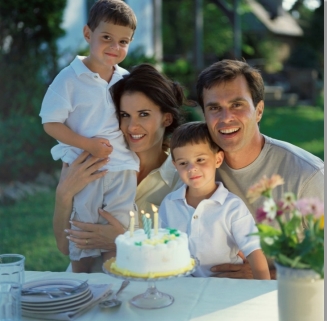 First of all, some words about my parents. My mother is a teacher of history. She works in a college. She likes her profession. She is a good-looking woman with brown hair. She is forty-five but she looks much younger. She is tall and slim.My father is a computer programmer. He is very experienced. He is a broad-shouldered, tall man with fair hair and grey eyes. He is forty-seven. My father often sings and when we are at home and have some free time, I play the guitar and we sing together. My father knows all about new TV sets and likes to repair old ones. He is also handy with many things. When he was little, he liked to take everything to pieces. My grandmother told me a story that once father tried to "repair" their kitchen clock. He managed to put all the wheels and screws back again — but the clock did not work. They had to give it to a repairman. But that happened a long time ago. Now he can fix almost everything: a vacuum cleaner, a washing machine, a fridge and what not. He's got a few shelves where he keeps everything he needs. On his table there is always a TV set in pieces.
First of all, some words about my parents. My mother is a teacher of history. She works in a college. She likes her profession. She is a good-looking woman with brown hair. She is forty-five but she looks much younger. She is tall and slim.My father is a computer programmer. He is very experienced. He is a broad-shouldered, tall man with fair hair and grey eyes. He is forty-seven. My father often sings and when we are at home and have some free time, I play the guitar and we sing together. My father knows all about new TV sets and likes to repair old ones. He is also handy with many things. When he was little, he liked to take everything to pieces. My grandmother told me a story that once father tried to "repair" their kitchen clock. He managed to put all the wheels and screws back again — but the clock did not work. They had to give it to a repairman. But that happened a long time ago. Now he can fix almost everything: a vacuum cleaner, a washing machine, a fridge and what not. He's got a few shelves where he keeps everything he needs. On his table there is always a TV set in pieces.
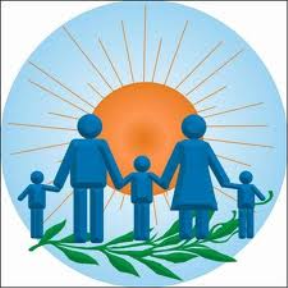 My parents have been married for twenty-six years. They have much in common, but they have different views on music, books, films and sports. For example, my father likes horror films and my mother likes "soap operas". My father is fond of tennis and my mother doesn't go in for sports. But my parents have the same opinion about my education and upbringing.
My parents have been married for twenty-six years. They have much in common, but they have different views on music, books, films and sports. For example, my father likes horror films and my mother likes "soap operas". My father is fond of tennis and my mother doesn't go in for sports. But my parents have the same opinion about my education and upbringing.
My parents are hard working people. My mother keeps the house and takes care of all of us. She is very good at cooking and she is clever with her hands. She is very practical. My father and I try to help her with the housework. I wash the dishes, go shopping and tidy up our flat.
My grandmother is a pensioner. She lives with us and helps to run the house. She is fond of knitting.
My sister Helen is twenty-four. She is married and has a family of her own. She works as an accountant for a joint venture company. Her husband is a scientist. They have got twins: a daughter and a son. They go to a nursery school.
My brother Sergey is eleven. He is a schoolboy. He wants to become a doctor but he is not sure yet. Three months ago he dreamed of being a cosmonaut.
I want to enter the university. I'd like to learn foreign languages. I think I take after my father. I'm tall, fair-haired and even-tempered. I always try to be in a good mood.
We have got a lot of relatives. We are deeply attached to one another and we get on very well.

- slim — стрункий
- experienced [іks 'piəriənst] — досвідчений, кваліфікований
- broad-shouldered [brɔ:d 'ʃəuldəd] — широкоплечий
- to be handy ['hændɪ] with smth. — уміти робити щось
- to have much in common ['komən] — мати багато спільного
- view [vju:] on smth. — погляд на щось
- to be fond of smb., smth. — любити когось, щось, захоплюватись чимось
- to go in for smth. — займатися чим-небудь
- upbringing ['ʌp,brɪniŋ] — виховання
- she is good at cooking ['kukɪŋ] — вона добре готує
- she is clever ['klevə] with her hands — у неї вправні руки
- to run the house — вести господарство
- joint venture [dʒɔɪnt'ventʃə] company — спільне підприємство
- to take after [teɪk 'aftə] — бути схожим, вдатися в когось із батьків
- fair-haired [fɛə hɛəd] — світловолосий
- even-tempered ['i:v(ə)n 'tempəd] — урівноважений
- to be in a good mood [mu:d] — бути в гарному настрої
- to be deeply attached [ə'tætjt] to smb. — бути глибоковідданим комусь
- to get on well — бути в добрих стосунках, ладнати один з одним

1. What is your first name? What is your surname?
2. How old are you?
3. When is your birthday?
4. Is your family large? How many are you in the family?
5. Have you got any brothers or sisters?
6. What are your parents? Where do they work?
7. How long have your parents been married?
8. Do they have much in common?
9. Do you spend a lot of time with your family?
10. What sort of things do you do together?
11. Do you go out with your parents?
12. Who runs the house in your family?
13. What are your household duties?
14. What is your father's hobby?
15. Can you describe your mother?
THE FAMILY RELATIONSHIPS
![]() The family is very important as a unit in our society. Nothing else but family can be an emotional center of people's life, can be a transmitter of culture and raising children. Every mother feels great affection for her children and tries to bring them up in a proper way. Understanding between the members of the family and consideration for others are very important in family relationship. Tenderness, warm-heartedness and respect must always be present in the family to make it friendly. A lot of activities help members of the family to be on friendly terms: discussing all the family plans together, going on trips hikes together, visiting museums, theaters, exhibitions and exchanging opinions about them, sharing the same joys and sorrows. If you think of the others in the family you show your love and attention in everyday life, you can hurt them if you are selfish, not sincere and rude. It is very important to visit relatives on holidays, on birthdays, on anniversaries and develop close relationship. We feel more affection for our relatives when we are parted from them. The proverb says, " Absence makes the heart grow fonder". When the family is friendly, everybody has the warmed feelings of returning home where dear relatives are waiting for them. There are different opinions on how children should be treated if they disobey their parents, break the rules, do forbidden things, don't keep their words or promises. Some people think that parents should be patient, kind and understanding. The rules and children's behaviors are discussed in such families. But others believe that children ought always to obey the parents and if they won't they should be punished. From my point of view, such principles won't do a lot of good. Fear and punishment will lead to selfishness, cruelty and lies. But "love and kindness will save the world". We are the family of two. I live with my mother.
The family is very important as a unit in our society. Nothing else but family can be an emotional center of people's life, can be a transmitter of culture and raising children. Every mother feels great affection for her children and tries to bring them up in a proper way. Understanding between the members of the family and consideration for others are very important in family relationship. Tenderness, warm-heartedness and respect must always be present in the family to make it friendly. A lot of activities help members of the family to be on friendly terms: discussing all the family plans together, going on trips hikes together, visiting museums, theaters, exhibitions and exchanging opinions about them, sharing the same joys and sorrows. If you think of the others in the family you show your love and attention in everyday life, you can hurt them if you are selfish, not sincere and rude. It is very important to visit relatives on holidays, on birthdays, on anniversaries and develop close relationship. We feel more affection for our relatives when we are parted from them. The proverb says, " Absence makes the heart grow fonder". When the family is friendly, everybody has the warmed feelings of returning home where dear relatives are waiting for them. There are different opinions on how children should be treated if they disobey their parents, break the rules, do forbidden things, don't keep their words or promises. Some people think that parents should be patient, kind and understanding. The rules and children's behaviors are discussed in such families. But others believe that children ought always to obey the parents and if they won't they should be punished. From my point of view, such principles won't do a lot of good. Fear and punishment will lead to selfishness, cruelty and lies. But "love and kindness will save the world". We are the family of two. I live with my mother.
We don't have such problems as misunderstanding between the members of the family. I think that it is due to the age of my parents and their character. My mother is 40 years old, she is layer. She is a kind, clever and responsible woman. My mother always ready to give me necessary information, moral support and a good advice. It is common knowledge that there is no place like a home. We are dedicated to our homes, we give them much love, care and enthusiasm. A man's house is his castle. I like my home and I want to tell you more about it. I live in Kuprijanov st. in center of our city. We moved into this flat several years ago. Now it is a place where I feel it ease and enjoy every minute of my stay there. We have a washing-machine, a vacuum cleaner, a refrigerator, a freezer, hand-mixer, computer and other things which I consider to be quite necessary as they make our life easier and help to solve a lot of problems in the shortest possible time. We have 2 rooms, a kitchen and a bathroom. When you drop into our flat you come into a lobby, where you can take off your coat, shoes and hat. I'm very happy to have a room for myself, where I feel quite and comfortable. It is a place where I can relax, read a book and listen to music.
There are yellow blinds and a writing table, a sofa, a bookcase where my favorite books are situated. There are a lot of things in my room which can tell about myself, about my friends and relatives. You can find frames with photos of my parents and best friends on the walls, little pictures. They remind me happy moments of my life and that is why are very dear for me. You may be surprised, but the most popular and favorite place with all of us is the kitchen. Every Sunday my mother makes a cake and we gather together, discuss our problems and make plans for the next week. Our kitchen isn't large and looks the usual modern kitchen you can see in many other homes. I can tell a lot about my home, but to make a long story short I can say, that speaking about my home, I don't mean a flat as it is, I mean people, who are dear to me, who love me and are always waiting for me. That is why, wherever I were I would always hurry home.

- What is your age? (How old are you?)
- Are your grandparents or great-grandparents still living?
- Have you any brothers and sisters? Are they older or younger than you?
- What is your surname?
- Have you more than one Christian name?
MY FRIEND
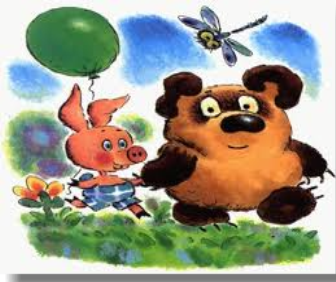
![]() My best friend's name is Michael. We made friends a few years ago. We are of the same age. We live in the same block of flats, so we see each other almost every day.
My best friend's name is Michael. We made friends a few years ago. We are of the same age. We live in the same block of flats, so we see each other almost every day.
Michael is a tall slender boy. He has got dark hair, large dark eyes, a straight nose and thin lips. He wears spectacles. He is a nice guy. He is very honest and just, understanding and kind. I trust him a lot and I'm sure that I can rely on him in any situation. He never lets people down. Michael is only 19 but he is very responsible — he finishes whatever he starts. He's got only one shortcoming. He is a bitstubborn; nevertheless he is pleasant to deal with.
Michael is an only child and his parents love him very much. His father is a lawyer. He is the most brilliant man I've ever met. He knows everything there is to know about the law. Michael's mother is a music teacher. No wonder Michael is so talented. He's got a very good ear for music. He likes jazz and plays the piano very well.
We spend a lot of time together. We often watch video or listen to music. Sometimes we go to the theatre, or walk around the centre of the city, visiting small cafes, museums, art galleries, and shops. We talk for hours about all sorts of things (politics, love, teachers and girls). We discuss films, television programmes, books.
I never quarrel with Michael. But if there is some misunderstanding between us we try' to make peace as soon as possible. What I like best about him is that he is always willing to help and share his knowledge, thoughts, and feelings. I respect him for his fairness, strong will, intellect, and modesty.
I miss Michael when we don't see each other for a long time. Without him I would feel lonely and uncomfortable. Our friendship helps me feel strong and sure of myself.

- of the same age [seɪm eɪdʒ] — однолітки
- block of flats — дом (багатоквартирний)
- slender ['slendə] — стрункий
- honest ['ɔnist] — чесний
- just [dzʌst] — справедливий
- understanding [,ʌndə'stændiŋ] — чуйний
- to rely [ri'laɪ] on smb. — покладатися на кого-небудь, довіряти
- to let smb. down — підводити
- responsible [rɪs'pɔnsəb(ə)l] — відповідальний
- shortcoming [ʃɔ:t'kʌmɪŋ] — недолік, вада
- stubborn ['stʌbən] — упертий
- he is pleasant ['pleznt] to deal [di:l] with — із ним приємно мати справу
- a good ear ['ɪə] for music — гарний музикальний слух
- to make peace [pi:s] — помиритися
- to respect [rɪs'pekt] — поважати
- fairness ['fɛənɪs] — справедливість, чесність
- modesty ['mɔdɪstɪ] — скромність, стриманість

1. Have you got a lot of friends?
2. What is your best friend's name?
3. How long have you been friends?
4. Where does he (she) live?
5. Do you often see each other?
6. Where did you meet for the first time?
7. What do you do in your spare time ?
8. What do you usually talk about?
9. Do you ever quarrel?
10. What do you like best about your friend?
11. Has he got any shortcomings?
12. Do you think friendship depends on shared interests — hobbies and leisure activities?
13. Does it mean that if two people don't have common hobbies they can't be real friends?
14. What features do you like (dislike) in people?
BOOKS IN OUR LIFE
![]() Nowadays it's almost impossible to imagine our life without books. Perhaps, there are more books on our planet than men alive.
Nowadays it's almost impossible to imagine our life without books. Perhaps, there are more books on our planet than men alive.
Long before the invention of printing people valued books as treasure troves of the human knowledge and experience. Hand — written manuscripts took months of writing and were collected by and kept in monasteries with utmost care. We can distinguish books between three classes of them.
 Firstly, books on different branches of knowledge, works by brilliant minds of mankind. Secondly, textbooks, reference books and numerous dictionaries. And at last, books of all kinds and genres to read at leisure.
Firstly, books on different branches of knowledge, works by brilliant minds of mankind. Secondly, textbooks, reference books and numerous dictionaries. And at last, books of all kinds and genres to read at leisure.
Classics should be taken a little at a time. One's understanding of books by Tolstoy and Dostoyevsky, Mopassan and Balzak depends on one's age and experience. Serious books are to be read conscientiously and maybe more than once. To a thinking reader they will provide new food for thought every time he rereads it. Many people indulge in reading science fiction, fantasy or detective stories. Of course, there are some advantages and disadvantages of this kind of literature, often reffered to as «easy reading».
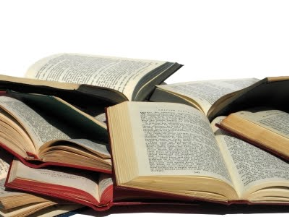 As for me, good science fiction and fantasy develop imagination, logical thinking, broader one's outlook.
As for me, good science fiction and fantasy develop imagination, logical thinking, broader one's outlook.
The same could be said in favour of detective stories. They reveal such minute details of everyday life in this or that particular country that are of greatest interest for a curious reader. The masterpieces of this genre by Sir Arthur Conan Doyle, Agatha Christie and others, show the depths of psychological analysis, the insight into the human nature.
As an old saying goes, man cannot live on bread alone. Books are the source of knowledge and the means of self — perfection. Sometimes it is difficult to solve some problems in life. I think that books can help us. Books must be our friends during all our life.

- treasure trove — скарбниця
- monastery — монастир
- conscientiously — свідомо
- to indulge in — захоплюватися
- science fiction — наукова фантастика
- outlook — кругозір

1. What kind of books do you prefer to read?
2. Do you like to read English or Russian books?
3. Is it possible to live without books for you?
4. Books are our friends, aren't they?
5. How many classes of books do we distinguish?
MY FAVOURITE BOOK: GONE WITH THE WIND
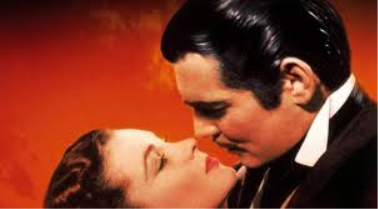
![]() I've recently read a book, which has made a very deep impression on me. It is called Gone with the Wind. The author of the book is Margaret Mitchell. She was born in Atlanta, Georgia, in a family of the president of the Atlanta Historical Society. All the family was interested in American history and she grew up in an atmosphere of stories about the Civil War.
I've recently read a book, which has made a very deep impression on me. It is called Gone with the Wind. The author of the book is Margaret Mitchell. She was born in Atlanta, Georgia, in a family of the president of the Atlanta Historical Society. All the family was interested in American history and she grew up in an atmosphere of stories about the Civil War.
After graduating from the college Margaret Mitchell worked for a time for the Atlanta Journal. In 1925 she got married. In the following ten years she put on paper all the stories she had heard about the Civil War. The result was Gone with the Wind. It was first published in 1936 and became the talking point of all America. In 1939 the book was made into a highly successful film. Vivien Leigh and Clark Gable played the leading roles. Vivien Leigh won the Oscar. Everyone loved her high-spirited and beautiful heroine, Scarlett O'Hara.
The story is set around the time of the American Civil War (1861 — 1865), when the Southern states went to war with the North to defend their way of life. It was a way of life in which rich gentry lived in large houses and owned huge areas of land, cultivated by black slaves. Scarlett O'Hara was born in one of those rich houses.
But Gone with the Wind is also about a love triangle. While Scarlett loves the quiet, gentlemanly Ashley Wilkes, the wild anddecidedly ungentlemanly Rhett Butler is in love with her.
In 1991, a publishing company asked Alexandra Ripley, a historical novelist, to write the continuation of the story. Her novelScarlett was not in the same class as the original. Critics have been writing very bad reviews of Scarlett, but the book is popular with the public.

- impression [ɪm'preʃ(ə)n] — враження
- Civil ['sivɪl] War — громадянська війна
- high-spirited ['haɪ spɪrɪtɪd] — відважний, палкий
- to defend [dɪ'fend] — захищати
- gentry ['dʒentrɪ] — джентрі, дрібномаєтне дворянство
- to own [əun] — володіти
- gentlemanly ['dʒentlmənlɪ] — вихований, чемний; джентльменський wild [waɪld] — шалений, дикий
- decidedly [dɪ'saɪdɪdlɪ] — явно
- review [rɪ'vju:] — огляд, рецензія, відгук

1. What do you think made Margaret Mitchell write a book about the Civil War?
2. Who starred in the film "Gone with the Wind"? Was the film successful?
3. Who are the main characters of the book "Gone with the Wind"?
4. What is the story set around?
5. What can you say about Scarlett O 'Hara ?
6. Is the book popular with the public?
MY FAVOURITE FILM
![]() To talk about "Titanic" is to talk about money. There was a time when the public and the press talked about movies as entertainment, as political statements, sometimes even as art. That was before
To talk about "Titanic" is to talk about money. There was a time when the public and the press talked about movies as entertainment, as political statements, sometimes even as art. That was before
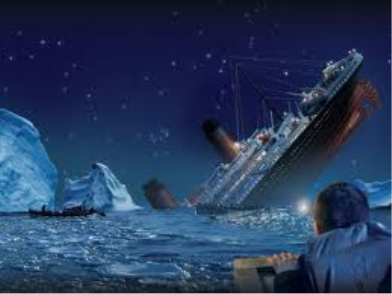 "Heaven's Gate", before "Water-world", before the media became obsessed with budgets. That was before the era of James Cameron.
"Heaven's Gate", before "Water-world", before the media became obsessed with budgets. That was before the era of James Cameron.
The economic trajectory of director Cameron's career is a fever chart of Hollywood inflation. "Terminator" was a low-budget beauty costing $6,5 million. Two years later his "Aliens" came in at $18,5 million, which looks cut-rate today. The price tag on "TheAbyss" (1989) was $40 million. Then began the run that made him the perennial King of the Most Expensive Movie Ever Made. "Terminator 2" (1991; $93 million); "True Lies" (1994: $100 million). And now "Titanic", at $200 million.
The man's clearly a genius at spending other people's money. And so far he's been worth it: his films have made more than $1 billion.
As you know, the 3-hour- 14-minute "Titanic" is no mere disaster movie. It's an epic love story about a 17-year-old American aristocrat (Kate Winslet) who is betrothed to a rich and hateful suitor (Billy Zane) but falls in love with a free-spirited artist (Leonardo DiCaprio), who won his third-class passage in a card game. It's "Romeo and Juliet" on a sinking ship and has become an international sensation.
"Titanic" is also a movie about money and its evils. With fine irony, Cameron has spent more dollars than any other filmmaker to make a film that denounces the rich.
The $8,4 million costume budget alone would finance several independent movies.
The special effects are in the service of the story. In the spectacular 80-minute sinking of the ship, you don't wonder what's real and what's computer-generated. What you feel is the horror of the experience, the depths of the folly that left this "unsinkable" ship sovulnerable to disaster. While the women and children are loaded into lifeboats (there were only enough for half the 2 200 passengers), the third-class passengers are locked belowdecks like.
But it is the love between the unhappy Rose and the sanguine, open-hearted Jack that occupies stage centre. Is it the great love story Cameron so desperately wanted to make? Not quite. Visually, his lovers are an odd match: next to DiCaprio's boyish beauty, Winslet looks womanly. And once the disaster strikes, their individual fates become overwhelmed by the communal horror. Our hearts, at least, couldn't break once these lovestruck kids were surrounded by floating frozen corpses.
Cameron says today that if he'd known what it would take to bring his vision to the screen, he'd have stopped before he started. But "regret" is not in the guy's vocabulary.

- obsessed [əb'sest] — одержимий
- chart [tʃa:t] — діаграма
- alien ['eɪljən] — чужий
- cut-rate ['kʌtreɪt] — який коштує недорого
- tag [tæg] — ярлик
- abyss [ə'bɪs] — безодня, прірва
- perennial [pə'renjəl] — вічний
- billion ['bɪljən] — мільярд
- betrothed [bɪ'trəuðd] — заручений
- suitor ['sju:tə] — шанувальник, залицяльник
- passage ['pæsɪdʒ] — квиток (на пароплав)
- to sink [sɪŋk] — тонути
- to denounce [dɪ'nauns] — засуджувати
- to generate ['dʒenəreɪt] — породжувати, створювати
- folly ['folɪ] — безумність, нерозсудливість, дурість
- vulnerable ['vʌln(ə)rəbl] — уразливий
- sanguine ['sæŋgwɪn] — життєрадісний
- corpse [kɔ:ps] — труп

1. What is special about "Titanic "?
2. Who directed the film ? Wlwt do you know about him ?
3. Who are the main heroes of the film ? Characterize them.
4. Is "Titanic" a disaster movie? Why not?
5. What are all the topics of the film ?
6. Why do you like this film ?
MUSIC
![]()
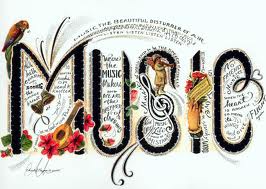 Can you think of a day without music? There is music everywhere: at home, in a concert hall, in parks, at the seaside and even in the forest. People cannot live without music. They listen to music, they dance to music, they learn to play musical instruments. But what is music? Specialists explain it very well. Music isn't combination of pleasant sounds only. It is an art, which reflects life. Music reflects people's ideas and emotions. Music is also a weapon. It fights for light against darkness, for freedom against tyranny, for humanism against barbarity ("Seventh symphony" by Shostakovich, "Sixth symphony" by Tchaikovsky and so on). When speaking of different forms of music I'd like to mention first and foremost classical music. I prefer different musical genres: symphony, concerto, chamber music, vocal music, opera, and ballet. Classical music gives me delight, pleasure, partly sensual, partly intellectual. Classical music is always a complex of emotions, excitement and at the same time, love for others and a desire to do something for them. When listening to classical music I have to combine all my feelings into one and to give it name, it will be happiness. Classical music contains the powerful appeal for listeners. It addresses both our senses and intellect. We are lucky to have such a famous orchestra, which executes music by Beethoven and Mozart, Britten and Gershvin. It is famous all over the world of its original interpretations of classical music. As for me I prefer such musical pieces which are based on the theme of struggle of good against evil. Also I like quiet lyrical piano pieces by Chopin and Prokofiev which are full of enchanting melodies.
Can you think of a day without music? There is music everywhere: at home, in a concert hall, in parks, at the seaside and even in the forest. People cannot live without music. They listen to music, they dance to music, they learn to play musical instruments. But what is music? Specialists explain it very well. Music isn't combination of pleasant sounds only. It is an art, which reflects life. Music reflects people's ideas and emotions. Music is also a weapon. It fights for light against darkness, for freedom against tyranny, for humanism against barbarity ("Seventh symphony" by Shostakovich, "Sixth symphony" by Tchaikovsky and so on). When speaking of different forms of music I'd like to mention first and foremost classical music. I prefer different musical genres: symphony, concerto, chamber music, vocal music, opera, and ballet. Classical music gives me delight, pleasure, partly sensual, partly intellectual. Classical music is always a complex of emotions, excitement and at the same time, love for others and a desire to do something for them. When listening to classical music I have to combine all my feelings into one and to give it name, it will be happiness. Classical music contains the powerful appeal for listeners. It addresses both our senses and intellect. We are lucky to have such a famous orchestra, which executes music by Beethoven and Mozart, Britten and Gershvin. It is famous all over the world of its original interpretations of classical music. As for me I prefer such musical pieces which are based on the theme of struggle of good against evil. Also I like quiet lyrical piano pieces by Chopin and Prokofiev which are full of enchanting melodies.
Many young people today are gravitating towards new rhythms. This explains why new pop groups are proliferating. Pop has permeated all themass media. Pop may be said to have emerged in the mid 1950's with the arrival of rock'n'roll. About 99% of pop songs are about love. Nowadays many listeners are rejecting second-rate products, which are nothing but a rehashing of the old numbers. This explains the success achieved by many groups and some other bands of the new generation which are free of false sentiments. They are genuine. The voice of the new groups is pure and clear and they sing about the things that are important in life. A readiness to experiment, favour and sincerity are their hallmark. A simple message conveyed with a good melody has, Ibelieve, been found by the "Beatles". Some of their old songs still enjoy popularity today.
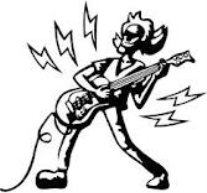 Pop music has always been influenced by other forms of music: by jazz, the blues, classical music etc. Another important influence is folk music. Folk songs are the songs composed and sung by country people. They may be hundreds of years old. Nobody knows who originally composed them. Folk music is often music for dancing. Russian and Ukrainian folk songs are very melodious. I like to listen to Russian and Ukrainian folk songs sung by outstanding singers.
Pop music has always been influenced by other forms of music: by jazz, the blues, classical music etc. Another important influence is folk music. Folk songs are the songs composed and sung by country people. They may be hundreds of years old. Nobody knows who originally composed them. Folk music is often music for dancing. Russian and Ukrainian folk songs are very melodious. I like to listen to Russian and Ukrainian folk songs sung by outstanding singers.

- to reflect [rɪ'flekt] — відображати; відбивати (світло)
- weapon ['wepən] — зброя
- first and foremost ['fɔ:məiɪst] — насамперед, у першу чергу,
- перш за все delight [dɪ'laɪt] — задоволення, насолода
- to contain [kən'teɪn] — містити (мати) в собі; вміщати
- hallmark ['hɔ:l'ma:k] — ознака, критерій
- to convey [kən'veɪ] — передавати
COMPUTERS IN MY LIFE

![]() Computer studies is a subject in many schools. Many young people have personal computers. Ninety-six per cent of them are males of all ages. All of them spend an average of twenty hours per week on home computers. The majority of the adults also use computers at work. About one in three hundred computer owners, so-called computer addicts, spends almost all his time using computers. All the computer addicts are very educated. They have been interested in science and technology from a very early age and they are usually very shy people who like being alone.
Computer studies is a subject in many schools. Many young people have personal computers. Ninety-six per cent of them are males of all ages. All of them spend an average of twenty hours per week on home computers. The majority of the adults also use computers at work. About one in three hundred computer owners, so-called computer addicts, spends almost all his time using computers. All the computer addicts are very educated. They have been interested in science and technology from a very early age and they are usually very shy people who like being alone.
A survey in a school showed that fewer girls are interested in computers because girls are less likely to have a computer. Even if they have one, they use them less frequently than boys. Possibly it is because we think of computers as something to do with maths and science, which are traditionally "male" subjects. Possibly it is because most of the computer teachers are men, who give the girls less attention. Possibly parents think it is less important for girls to have computer skills.
Computer addicts love debugging, develop programs and love learning programming languages. They learnt to communicate with other users through computer networks and the people they met in school and work think of them as experts who could help and advise when they had problems with their machines. A few spend their time "hacking" and one addict left a message on a computer of Buckingham House. Very few computer addicts play computer games, but many people use a computer exclusively for games.
 Some parents worry about computer games because they think their children won't be able to communicate with real people in the real world. But parents do not need to worry. According to research computer addicts usually do well after they have left school. Parents also do not need to worry that computer addiction will make their children become unfriendly and unable to communicate with people. It is not the computer that makes them shy. In fact, what they know about computers improves their social lives. They become experts and others come to them for help and advice.
Some parents worry about computer games because they think their children won't be able to communicate with real people in the real world. But parents do not need to worry. According to research computer addicts usually do well after they have left school. Parents also do not need to worry that computer addiction will make their children become unfriendly and unable to communicate with people. It is not the computer that makes them shy. In fact, what they know about computers improves their social lives. They become experts and others come to them for help and advice.
For most children computer games are a craze. Like any other craze, such as skate-boarding, the craze is short-lived. It provides harmless fun and a chance to escape.If we didn't have these computer addicts, we wouldn't have modern technology. They are the inventors of tomorrow.

- male [meɪl] — чоловік; чоловічий
- average ['æv(ə)rɪdʒ] — середній
- majority [mə'dʒɔrɪtɪ] — більшість
- owner ['əunə] — власник
- to addict ['ædikt] — захоплюватися (чимсь); наркоман
- survey ['sə:veɪ] — дослідження, огляд, опитування
- debugging [di:'bʌgɪŋ] — finding and removing problems in computers and computer programs – пошук і усунення технічних і програмних неполадок у комп'ютерах
- "hacking" ['hækɪŋ] (gaining access to computers when it is not allowed) — хакерство (отримання несанкціонованого доступу до комп'ютерів)
- to do well — процвітати, досягати успіху

1. What are computer addicts like?
2. Have you ever used a computer? What do you use it for?
3. Why are computers used?
4. Why are more boys than girls interested in computers ? 3. Is computer addiction harmful?
INTERNET AND MODERN LIFE
![]() The Internet has already entered our ordinary life. Everybody knows that the Internet is a global computer network, which embraces hundred of millions of users all over the world and helps us to communicate with each other.
The Internet has already entered our ordinary life. Everybody knows that the Internet is a global computer network, which embraces hundred of millions of users all over the world and helps us to communicate with each other.
The history of Internet began in the United States in 1969. It was a military experiment, designed to help to survive during a nuclear war, when everything around might be polluted by radiation and it would be dangerous to get out for any living being to get some information to anywhere. Information sent over the Internet takes the shortest and safest path available from one computer to another. Because of this, any two computers on the net will be able to stay in touch with each other as long as there is a single route between them. This technology was called packet switching.
Invention of modems, special devices allowing your computer to send the information through the telephone line, has opened doors to the Internet for millions of people.
 Most of the Internet host computers are in the United States of America. It is clear that the accurate number of users can be counted fairly approximately, nobody knows exactly how many people use the Internet today, because there are hundred of millions of users and their number is growing.
Most of the Internet host computers are in the United States of America. It is clear that the accurate number of users can be counted fairly approximately, nobody knows exactly how many people use the Internet today, because there are hundred of millions of users and their number is growing.
Nowadays the most popular Internet service is e-mail. Most of the people use the network only for sending and receiving e-mail messages. They can do it either they are at home or in the internet clubs or at work. Other popular services are available on the Internet too. It is reading news, available on some dedicated news servers, telnet, FTP servers, etc.
In many countries, the Internet could provide businessmen with a reliable, alternative to the expensive and unreliable telecommunications systems its own system of communications. Commercial users can communicate cheaply over the Internet with the rest of the world. When they send e-mail messages, they only have to pay for phone calls to their local service providers, not for international calls around the world, when you pay a good deal of money.
 But saving money is only the first step and not the last one. There is a commercial use of this network and it is drastically increasing. Now you can work through the internet, gambling and playing through the net.
But saving money is only the first step and not the last one. There is a commercial use of this network and it is drastically increasing. Now you can work through the internet, gambling and playing through the net.
However, there are some problems. The most important problem is security. When you send an e-mail, your message can travel through many different networks and computers. The data is constantly being directed towards its destination by special computers called routers. Because of this, it is possible to get into any of the computers along the route, intercept and even change the data being sent over the Internet. But there are many encoding programs available. Notwith-standing, these programs are not perfect and can easily be cracked.
Another big and serious problem of the net is control. Yes, there is no effective control in the^Internet, because a huge amount of information circulating through the net. It is like a tremendous library and market together. In the future, the situation might change, but now we have what we have. It could be expressed in two words— an anarchist's dream.

- network — мережа
- to embrace- охоплювати, оточувати
- user — юзер, користувач
- to design — задумувати, придумувати, розробляти
- to survive — вижити
- nuclear war - ядерна війна
- to pollute — забруднювати
- dangerous — небезпечний
- path — шлях, маршрут
- available — доступний, наявний у розпорядженні, наявний
- the net — інтернет, мережа
- packet switching — пакетне перемикання
- invention — винахід
- accurate — точний
- to count —рахувати
- approximately— приблизно
- to receive — одержувати
- message — послання
- to provide — постачати, доставляти, забезпечувати
- reliable — надійний
- alternative — альтернативний
- provider — провайдер, постачальник
- security — безпека
- router — маршрутизатор
- to intercept — перехопити (сигналіт.д. )
- to encode — кодувати, шифрувати
- not with standing — проте , однак, все-таки
- to crack — зламати
- huge — великий, гігантський, величезний
- to circulate — пересуватися/рухатися в межах чогось
- tremendous —розм. величезний, гігантський

1. What is the Internet?
2. When and where did the history of Internet begin?
3. Why was the Internet designed?
4. What is modem?
5. Where are most of the Internet host computers?
6. What is the accurate number of internet users?
7. What is the most popular Internet service today?
8. What are other popular services available on the Internet?
9. What is the most important problem of the Internet?
10. Why is there no effective control in the Internet today?
11. Is there a commercial use of the network today?
 HEALTHY LIFESTYLE
HEALTHY LIFESTYLE
![]() Nowadays our life is getting more and more tense. People live under the press of different problems, such as social, ecological, economic and others. They constantly suffer from stress, noise and dust in big cities, diseases and instability. A person should be strong and healthy in order to overcome all difficulties. To achieve this aim people ought to take care of their physical and mental health. There are several ways to do it. The state of your body depends on how much time you spend doing sports. At least everybody must do morning exercises every day. The most healthy kinds of sports are swimming, running and cycling. Healthy food is also a very important factor. Overeating causes many dangerous diseases. The daily menu should include meat, fruit and vegetables, milk product, which are rich in vitamins, fat, proteins and etc. On the other hand modern diets are very popular especially among women. Diets may be harmful, if they are used in the wrong way. To be healthy, people should get rid of their bad habits. It's necessary to stop smoking and drinking much. Everyone should remember that cigarettes, alcohol and drugs destroy both body and brain. Besides according to statistics most of crimes are committed by people under the influence of drugs and alcohol. In addition it is recommended to watch TV less, avoid anxiety and observe daily routine. Certainly it's hard to follow all these recommendations, but every person have to choose between healthy life style and numerous illnesses.
Nowadays our life is getting more and more tense. People live under the press of different problems, such as social, ecological, economic and others. They constantly suffer from stress, noise and dust in big cities, diseases and instability. A person should be strong and healthy in order to overcome all difficulties. To achieve this aim people ought to take care of their physical and mental health. There are several ways to do it. The state of your body depends on how much time you spend doing sports. At least everybody must do morning exercises every day. The most healthy kinds of sports are swimming, running and cycling. Healthy food is also a very important factor. Overeating causes many dangerous diseases. The daily menu should include meat, fruit and vegetables, milk product, which are rich in vitamins, fat, proteins and etc. On the other hand modern diets are very popular especially among women. Diets may be harmful, if they are used in the wrong way. To be healthy, people should get rid of their bad habits. It's necessary to stop smoking and drinking much. Everyone should remember that cigarettes, alcohol and drugs destroy both body and brain. Besides according to statistics most of crimes are committed by people under the influence of drugs and alcohol. In addition it is recommended to watch TV less, avoid anxiety and observe daily routine. Certainly it's hard to follow all these recommendations, but every person have to choose between healthy life style and numerous illnesses.
Sport and healthy lifestyle
The fitness boom of the past decades led to a big rise in the numbers of people participating in sports and activities. Those who pursue the latest fitness fashion are convinced that staying in good physical form requires much more than regular exercise and balanced meals. For anyone who really wants to be healthy, fitness has become an integral part of their lives. A lot of health and fitness club, and public leisure centers indicate the popularity of sports during the past thirty years. There are many opportunities for keeping fit. First of all it's necessary to do exercises. Running, jumping, swimming, bending and stretching are among the most popular exercises. Many people prefer jogging, which is the cheapest and the most accessible sport. Popular running competitions are now held everywhere. The big city marathons have become sporting events. A healthy body becomes a fashion, an ideal of the modern life. Many sports activities have become part of daily Russian life. Football has always been the most popular sport among boys. Playing football is healthy, football also bring people close because in order to win people have to work as a team. The best way to avoid depression caused by the city life is doing exercises. Taking exercise is only one part of keeping fit. It's important to get slim. Some people eat nothing but fruit for several days. But it won't be of any use without proper exercises. Besides to avoid serious disease one should give up smoking. Smoking should be banned in all public places.
As for me, I'm interested in different kinds of sport. At school we have physical training lesson twice a week. I like to ski in winter. Sometimes the whole family goes skiing at the weekend. In summer I like to swim. I also do some cycling. I'm very fond of hockey. I try to watch every hockey match on TV.
HEALTHY FOOD
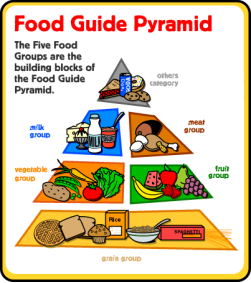
![]() All food is made up of nutrients which our bodies use. There are different kinds of nutrients: carbohydrates, proteins, fats» vitamins and minerals. Different foods contain different nutrients.
All food is made up of nutrients which our bodies use. There are different kinds of nutrients: carbohydrates, proteins, fats» vitamins and minerals. Different foods contain different nutrients.
Before we cut down on fat, sugar and salt, we have to know a bit more about the kind of food these things might be in. The biggest problem comes when these things are hidden in other foods: biscuits, crisps, sausages, meat pies, soft drinks and so on.
The best way is to get into the habit of checking the ingredients and nutritional value on the sides of packets although this isn't always easy to do. Another thing to know is, for example, that we do need fat to live, it's an essential part of our diet and physically we couldn't exist without it.
But we all know that to eat much fat is bad for our health. The matter is that there are different kinds of fat. There are fats that are good for us and fats that are bad for us. Eating less of the bad ones and more of the good ones can actually help us to live longer! Bad fats are the saturated fats, found in animal productions, like red meat, butter and cheese.
Friendly fats are the unprocessed fats found naturally in foods like nuts and seeds, olives, avocados and oily fish, including tuna.
One more thing to know is that when food is cooked, its structure changes. It can change the vitamin and nutrient contents of food.
More and more people feel strongly about the way, their food is produced. Nowadays so much of the basic food we eat — meat, fish, fruit and vegetables — is grown using chemicals and additives.
Although fertilizers and pesticides have greatly increased the quantity of food and helped to improve its appearance, there is a growing concern about the effects of these chemicals in the food chain. This concern has led to a growth in the demand for organically grown products.
Today there is another problem. It is modified food, which is cheaper that ordinary one. There is a rumour that such food can cause cancer and other problems. Nobody knows, either it is just an imagined fear or a real problem. This problem could be solved and examined, but it will take some time.
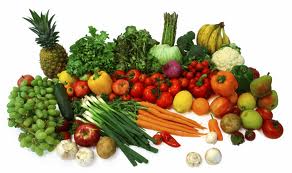 The food we eat, depends on lots of things. Taste is a big factor. Culture, religion and health also play a part in what food we eat. Advertising and social factors also have a big influence.
The food we eat, depends on lots of things. Taste is a big factor. Culture, religion and health also play a part in what food we eat. Advertising and social factors also have a big influence.
Income is also an important factor. That is why not surprisingly, money, rather than a lack of knowledge about how to eat well, is at the heart of the problem.
Finally, there are three main messages to follow for healthy eating:
First, we should eat less fat, particularly saturated fat.
Secondly, we are to cut down on sugar and salt.
Thirdly, we must eat more fresh fruit and vegetables.

- nutrient - живильна речовина
- carbohydrate — углевод
- protein — білок, протеїн
- fat — жир
- to contain — містити
- to cut down on —зменшити прийом чого- л.
- to hide (past hid, p.p. hidden) — ховати, сховати
- crisp — ламкий, тендітний
- to get into the habit of - взяти за звичку
- essential — істотний, життєво важливий
- saturated fat — жири з високим змістом насичених жирних кислот
- butter - масло
- unprocessed fat — неопрацьовані жири
- seed — насіння, насіннячко
- avocado — авокадо, аллігаторова груша
- tuna — тунець
- additive - добавка
- fertilizer — добриво
- pesticide — пестицид, ядохімікат
- to increase - збільшити
- to improve — поліпшити
- concern — інтерес, участь, зацікавлення, відношення
- food chain - харчовий ланцюжок
- to lead (past led, p.p. led) - вести, приводити
- demand - потреба
- modified food - модифікована їжа
- to cause — бути причиною, викликати
- cancer — рак (онкологія)
- fear — страх, острах, побоювання
- to solve - вирішувати
- to depend on — залежати від
- income — прибуток; заробіток
- lack — недолік, нестаток; відсутність чого-небудь.

1. What nutrients do you know?
2. What are the main things to know about food we eat?
3. What fats are good?
4. What fats are dangerous for our health?
5. What are the main factors that determine the food we eat?
6. What are three main messages to follow for healthy eating?
MY ATTITUDE TO SPORTS![]()
![]() Let me tell you about my own attitude to sports and sportsmen.
Let me tell you about my own attitude to sports and sportsmen.
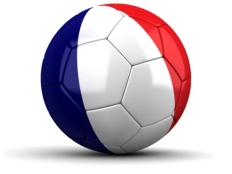 To begin with I must say that sport is one of the things that always keep people fit. I think that everyone must do all he can to be healthy. Physically inactive people get older earlier than those who have plenty of exercises. If you do daily exercises regularly, you feel refreshed, have a good posture and that makes you feel well.
To begin with I must say that sport is one of the things that always keep people fit. I think that everyone must do all he can to be healthy. Physically inactive people get older earlier than those who have plenty of exercises. If you do daily exercises regularly, you feel refreshed, have a good posture and that makes you feel well.
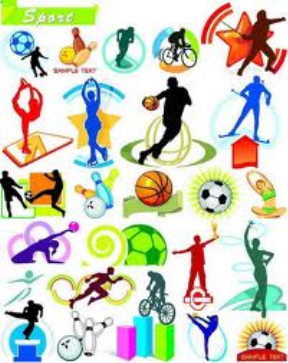 Wise people say that good health is a great blessing. Everyone should do all possible to stay healthy. Being in good health means having both body and mind in good working order free from diseases and pain.
Wise people say that good health is a great blessing. Everyone should do all possible to stay healthy. Being in good health means having both body and mind in good working order free from diseases and pain.
There is a truthful Latin proverb: "A sound mind is in a sound body". If you want to keep yourself fit, you are to go in for sports.
Sport is very popular in our family. Together with my father we do our usual morning exercises at home and twice a week we have our basketball training in the sports club and in summer we like to swim most of all, because swimming makes a man healthy and strong.
I'm a hockey fan, too. I try to watch every hockey match on TV. Moreover I take part in different sports competitions which our school organizes from time to time. The most popular kinds of sport in our school are football, basketball, gymnastics, and wrestling. Some boys are also fond of boxing. Among girls callisthenics is very popular. All these sports have their strong supporters.
My favourite kind of sport is tennis. I have been playing it since I was eleven years old, and the more I play it, the more I like it. There is a good tennis court not far from my house and I often go there with my friends.

- to keep fit [kɪ:pfit] — бути здоровим, бадьорим, у хорошій формі
- to do daily exercises — щодня робити фізичну зарядку
- to feel refreshed [rɪ'freʃt] — почувати себе бадьорим, оновленим
- posture ['pɔstʃə] — поза; положення, постава
- blessing ['blesiŋ] — благо; щастя; щасливий дар
- disease [dɪ'zi:z] — хвороба
- truthful ['tru:θful] — вірний, правильний; правдивий (пролюдину)
- competitions [,kɔmpɪ'tɪʃ(ə)n] — змагання
- wrestling ['resliŋ] — боротьба
- callisthenics [,kælis'θenɪks] — ритмічна гімнастика

1. Why should people go in for sports?
2. Is it difficult to choose the kind of spoil you would like to go in for?
3. Why are the lessons of physical training at school so important?
4. What kind of sport are you fond of?
5. Why are you fond of this kind of sport?
THE HISTORY OF THE OLYMPIC GAMES
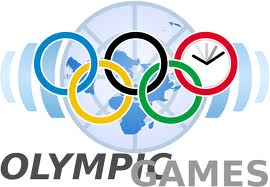
![]() Long ago ancient Greeks often waged wars. Small states suffered and lost much even if they did not take any side and stayed out of wars. The ruler of such a small state, Elis, wanted to live in peace with all neighbours. He was a good diplomat because his negotiations were successful and Elis was recognized a neutral state. To celebrate this achievement, he organized athletic games.
Long ago ancient Greeks often waged wars. Small states suffered and lost much even if they did not take any side and stayed out of wars. The ruler of such a small state, Elis, wanted to live in peace with all neighbours. He was a good diplomat because his negotiations were successful and Elis was recognized a neutral state. To celebrate this achievement, he organized athletic games.
In the beginning this feast lasted one day, but later a whole month was devoted to it. All wars and feuds were stopped by special heralds who rode in all directions of Greece.
The games were held every four years in Olympia on the territory of Elis. The first games which later were called the Olympic Games were held about a thousand years before our era.
Usually the Olympic Games began before the middle of the summer^ Best athletes arrived from many Greek states to Olympia to compete in running, long jumps, throwing of discus and javelin and wrestling. In the course of time fist fighting (boxing) and chariot races were also included in the Games.
All athletes took an oath that they had been preparing well for the Games and promised to compete honestly and keep the rules of the sacred Olympics. The athletes took part in all kinds of competitions. Winners were called «olympionics», they were awarded olive wreaths and cups of olive oil. This tradition has survived. In our time sportsmen often get cups and wreaths for winning the first place in sports competitions.
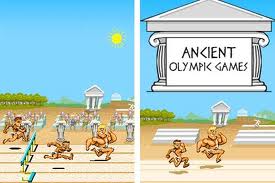 The olympionics of ancient Greece became very popular. Best craftsmen were chosen to make honourary cups, many poets wrote and recited in public poems about the best athletes. Sculptors made their statues which were put up at the birthplace of the winners.
The olympionics of ancient Greece became very popular. Best craftsmen were chosen to make honourary cups, many poets wrote and recited in public poems about the best athletes. Sculptors made their statues which were put up at the birthplace of the winners.
The Olympic Games were accompanied by arts festivals. Poets recited their poems, singers sang hymns dancers danced and orators pronounced speeches — all this in honour of the sacred Games.
Only men could take part in the Olympic Games. Women were not allowed even to watch the competitions at the stadium under the fear of death penalty. There was a single exception, when a woman coached her son and accompanied him to the stadium in men's clothes. That brave woman was spared the penalty because her son excelled in many events.
Magnificent strong bodies inspired artists and sculptors. They painted wall pictures and made statues of marble and bronze, so now we can admire the corporal beauty of ancient and eternally young discus thrower, javelin bearer and others.
The Olympic Games had been held for about eleven hundred years, until the emperor Theodosius banned them for religious reasons in 394 A. D.
The revival of the Olympic Games began long time afterwards, in 1892, when a young French teacher Pierre de Coubertin made a public speech before the Union of French sports clubs in Paris.
At that time many people in many countries practised various kinds of sports and games. They wanted to make friends and compete with sportsmen from other lands. Pierre de Coubertin understood the importance of sports which unified peoples of the world and served the cause of peace like in ancient time.
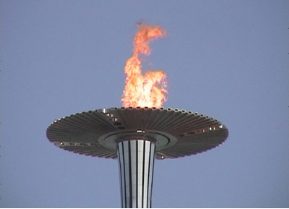 On the 23rd of June 1894 the International Congress of amateur sportsmen made an important decision: to revive the Olympic Games and to establish the International Olympic Committee which would be responsible for the administration of the modern-Olympic Games.
On the 23rd of June 1894 the International Congress of amateur sportsmen made an important decision: to revive the Olympic Games and to establish the International Olympic Committee which would be responsible for the administration of the modern-Olympic Games.
The first Committee consisted of 12 members. Now 82 members of the International Olympic Committee control the affairs of all member countries which joined the Olympic movement.

- to wage wars — вести війни
- ruler — правитель
- feast — свято
- herald — гонець, посланник
- javelin — спис
- sacred — священний
- wreath — вінок
- chariot races - перегони
- to be spared the penalty — бути врятованим від покарання

1. What did ancient Greeks do long ago? .
2. What did the ruler of a small state want to do?
3. Why did the ruler organize athletic games?
4. How long did the first feast last?
5. When did the Olympic Games begin?
6. How were the winners called?
7. What were the Olympic Games accompanied by?
8. Who was not allowed to take part in the Olympic Games?
9. When did the revival of the Olympic Games begin?
CHOOSING AN OCCUPATION
![]() One of the most difficult problems a young person faces is deciding what to do about a career. There are individuals, of course, who from the time they are six years old "know" that they want to be doctors, or pilots, or fire fighters, but the majority of us do not get around to making a decision about an occupation or career until somebody or something forces us to face the problem.
One of the most difficult problems a young person faces is deciding what to do about a career. There are individuals, of course, who from the time they are six years old "know" that they want to be doctors, or pilots, or fire fighters, but the majority of us do not get around to making a decision about an occupation or career until somebody or something forces us to face the problem.
 Choosing an occupation takes time, and there are a lot of things you have to think about as you try to decide what you would like to do. You may find that you will have to take special courses to qualify for a particular kind of work, or may find out that you will need to get some actual work experience to gain enough knowledge to qualify for a particular job.
Choosing an occupation takes time, and there are a lot of things you have to think about as you try to decide what you would like to do. You may find that you will have to take special courses to qualify for a particular kind of work, or may find out that you will need to get some actual work experience to gain enough knowledge to qualify for a particular job.
Fortunately, there are a lot of people you can turn to for advice and help in making your decision. At most schools, there are teachers who are professionally qualified to counsel you and to give detailed information about job qualifications. And you can talk over your ideas with family members and friends who are always ready to listen and to offer suggestions. But even if you get other people involved in helping you make a decision, self-evaluation is an important part of the decision-making process.

- to qualify ['kwɔlɪfaɪ] for — отримати яку-небудь кваліфікацію (спеціальність)

1. What is the most difficult problem for a young person ?
2. Why don't the majority of young people know what they want to be?
3. When do they make a decision about an occupation ?
4. What things do you have to think about when choosing an occupation ?
5. What should one do to qualify for a particular job ?
6. Whom can you turn to for advice when making your decision ?
7. What is the most important part of the decision-making process?
HOW TO WRITE A RESUME
![]() No matter what method of job hunting you use, inevitably somebody will ask you for a resume. Most companies require a resume before seriously considering a job candidate from the outside. Resumes are sometimes also required in order to receive a job transfer within a company.
No matter what method of job hunting you use, inevitably somebody will ask you for a resume. Most companies require a resume before seriously considering a job candidate from the outside. Resumes are sometimes also required in order to receive a job transfer within a company.
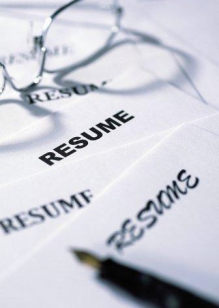 The purpose of a resume is to help you obtain a job interview, not a job. Very few people are hired without a personal interview.
The purpose of a resume is to help you obtain a job interview, not a job. Very few people are hired without a personal interview.
Effective resumes are straightforward, factual presentations of a person's experience and accomplishments. They are neither over detailed nor too sketchy. A general rule is that two or three pages in length is best.
One page seems too superficial; a four-page (or longer) resume may irritate an impatient employment official. Some writers suggest that a chronological (the standard-type) resume be used; others argue for an accomplishment resume. A useful resume should include both your experiences and key accomplishments. When sent to a prospective employer, a resume should be professionally reproduced, with particular attention to misspellings, typographical errors, and careful spacing.
To attract attention, some job seekers print resumes on tinted paper, in a menu-like folder, or on unusual-sized paper. If done in a way to attract positive attention to yourself, these approaches have merit.

- inevitably — неминуче
- to require —вимагати
- to hire — наймати
- accomplishment — виконання (досягнення)
- superficial- поверхневий
- to irritate — дратувати
- tinted paper- тоновий пофарбований папір
- merit- достоїнство

1. What is the purpose of a resume?
2. What are effective resumes?
3. What is the length of effective resumes?
4. What should a useful resume include?
5. How should a resume be reproduced?
KYIV - THE CAPITAL OF UKRAINE
![]() Kyiv, the capital of Ukraine, has the population of nearly three million inhabitants and covers over 43 km from east to west and 42 km from north to south.
Kyiv, the capital of Ukraine, has the population of nearly three million inhabitants and covers over 43 km from east to west and 42 km from north to south.
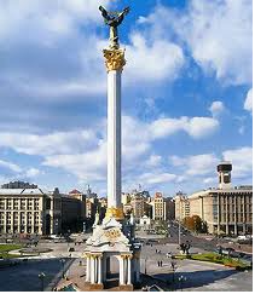 According to the legend, Kyiv was founded by three brothers — Kyi, Shchek, and Khoryv, — and their sister Lybid. The city was named after Kyi, the eldest brother. The monument erected in their honor stands on the bank of the River Dnipro.
According to the legend, Kyiv was founded by three brothers — Kyi, Shchek, and Khoryv, — and their sister Lybid. The city was named after Kyi, the eldest brother. The monument erected in their honor stands on the bank of the River Dnipro.
In the late 6th and early 7th centuries the first fortification appeared in the northern section of Old Kyiv Hill. While the court of the princes was located on the hills of Kyiv, the lower part of the city, known as Podil, developed into a busy trading district.
With the establishment of Kyivan Rus' (the 9th century), Kyiv became its capital.
Prince Volodymyr the Great (980—1015) expanded the city. Kyivan Rus' was at its zenith under the rule of Prince Yaroslav the Wise (1036—1054). Monasteries were established and developed into centres of education. Close to 400 churches were built, the most famous of which, Saint Sofia's Cathedral (1037), has survived to this day. The first library was founded on the grounds of the Cathedral.
Today Kyiv is one of the greatest ancient European cities, rich with the monuments of art and architecture. It is a political, scientific, cultural, sports, and industrial centre of modern Ukraine.
Kyiv is a major industrial centre that includes companies specializing in electronics, engineering, aviation, food, and chemical production, etc. Kyiv's economic development has been enriched by its advantageous location along the Dnipro River, which links Kyiv to the Black Sea.
The city has many hotels, cafes, and restaurants with Ukrainian, European, American, and Eastern cuisine to accommodate tourists and business persons. Stadiums, tennis courts, swimming pools, and gyms are also available for you. If you visit Kyiv in late May, you will witness a beautiful festival — "The Days of Kyiv".

- fortification [,fɔ:tɪfɪ'keɪʃ(ə)n] — військ, фортифікація; мн. фортифікаційні споруди
- to expand [ɪks'pasnd] — розширяти
- cathedral [kə'θi:dr(ə)l] — собор
- to accommodate [ə'kɔmədeɪt] — робити послугу; давати притулок, розміщати stadium ['steɪdjəm] — стадіон

1. What is the capital of Ukraine?
2. Who were the founders of Kyiv?
3. When did the first fortification appear?
4. When did Kyiv become the capital of Ukraine?
5. What do you know about Kyiv of modern times?
UKRAINIAN CUISINE
![]() Ukrainian cuisine is closely linked to the customs, culture, and way of life of the Ukrainian people. It is famous for its diversity and flavours.
Ukrainian cuisine is closely linked to the customs, culture, and way of life of the Ukrainian people. It is famous for its diversity and flavours.
The most popular Ukrainian dish is borsch. This thick and delicious soup is prepared with a variety of ingredients including meat, mushrooms, beans, and even prunes.
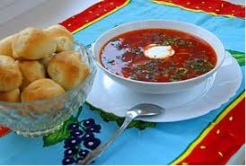 Mushroom soups, bean and pea soups, soups with dumplings and thick millet chowders are also popular.
Mushroom soups, bean and pea soups, soups with dumplings and thick millet chowders are also popular.
"Holubtsi", or stuffed cabbage, is another favourite dish, as are "varenyky" filled with potatoes, meat, cheese, sauerkraut or berries such as blue-berries or cherries. "Varenyky" are often mentioned in folk songs.
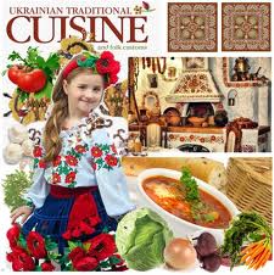 Ukrainians like dairy products. Some samples: cheese pancakes and "riazhanka" (fermented baked milk). There are no holidays without pies, "pampushky" (type of fritters), "baba" (a tall cylindrical cake) and honey cakes.
Ukrainians like dairy products. Some samples: cheese pancakes and "riazhanka" (fermented baked milk). There are no holidays without pies, "pampushky" (type of fritters), "baba" (a tall cylindrical cake) and honey cakes.
Ukrainian sausage is delicious. It is preserved in a special way — in porcelain vessels filled by melted fat.
Of course, every region of Ukraine has its own recipes and traditions.

- diversity [daɪ'və:sɪtɪ] — різноманітність
- flavour ['fleɪvə] — присмак, приправа
- dish [dɪʃ] — страва
- prune [pru:n] — чорнослив
- dumplings fdʌmplɪŋz] — галушки
- millet ['mɪlɪt] — просо, пшоно
- chowder ['tʃaudə] — юшка зі свинини, овочів тощо
- sauerkraut ['sauəkraut] — кисла капуста
- blue-berry ['blu:bərɪ] — чорниці
- cheese pancakes [tʃi:z 'pænkeɪks] — сирники
- fritter ['frɪtə] — оладки
- to fill [fɪl] by smth. — заповнювати (чим-небудь)
- recipe ['resɪpɪ| — рецепт

1. What is Ukrainian cuisine famous for?
2. What is the most popular Ukrainian dish ?
3. What are the other popular Ukrainian dishes?
4. What products do Ukrainians like ?
5. What is your favourite Ukrainian dish ?
6. What Ukrainian dishes do you like to cook?
CUSTOMS AND TRADITIONS. WHAT ARE THE TRAITS OF THE UKRAINIAN CHARACTER?
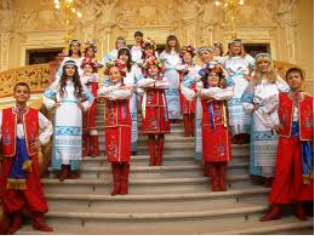
![]() First, there is kindness. There is also hospitality and friendliness. There is respect for elders, for the deceased; love for children, nature, and animals.
First, there is kindness. There is also hospitality and friendliness. There is respect for elders, for the deceased; love for children, nature, and animals.
Ukrainians have a sense of humour, they are musical, artistic. They are wonderful craftsmen famous for their mastery in weaving, wood-carving, and ceramics.
But skill and diligence in working the land is perhaps the greatest talent the Ukrainians possess.
Life depended on the rhythms of cultivating the soil. Holidays were celebrated during periods of transition from one type of agricultural activity to another.
Easter, for example, is a spring holiday. Spring is a time of ploughing and sowing in the fields, a time of warmth and awakening after a cold, hungry winter. In pagan times Ukrainians believed that the gods died tad were reborn every year. An example of pagan customs is the dyeing of eggs.
To the Christian Ascension Day (the 40th day after Easter) Ukrainians added a pre-Christian tradition of going to the field to inspect the progress of the wheat.
The Trinity is celebrated in summer, on the 50th day after Easter. Traditionally people decorate their homes with green tree branches and fragrant herbs.
Another summer holiday is Ivan Kupala's Day on July 7. During the day everyone has to be at least immersed in water. This was the last holiday before the harvest.
August 2, St. I Ilia's Day, marked the beginning of autumn. "Until dinner it's summer, after dinner it's autumn", people said. On the 19th of August, or on "Saviour Day", vegetables, fruit, mushrooms, and honey were blessed.
Weddings usually took place in the middle of October.
A unique feature of Ukrainian Christmas festivities is the "vertep", or puppet theatre". Young people get together, dress as angels, kings, Herod, Satan, Death, and even animals. They walk from house to house singing about the birth of Christ, greeting everyone with the holiday.

- kindness ['kaɪndnɪs] — доброта
- hospitality ['hɔspɪ'tælɪtɪ] — гостинність
- friendliness ['frendlɪnɪs] — дружелюбність
- deceased [dɪ'si:st] — покійний, мертвий
- sense [sens] of humour [hju:mə] — почуття гумору
- craftsman ['kra:ftsmən] — майстер, ремісник
- mastery ['ma:st(ə)rɪ] — майстерність, мистецтво
- wood-carving ['wud,ka:vɪŋ] — різьблення по дереву
- skill [skɪl] — майстерність, уміння
- diligence ['dɪlɪdʒ(ə)ns] — старанність, ретельність
- to plough [plаu] — орати
- to sow [səu] — сіяти
- pagan ['peɪgən] — язичеський, язичницький
- fragrant ['freɪgr(ə)nt] — ароматний, духмяний

1. What are the traits of the Ukrainian character?
2. What is the greatest talent the Ukrainians possess?
3. What are the spring holidays?
4. What summer holidays do you know?
5. What is a unique feature of Ukrainian Christmas festivities?
6. What holiday do you like best of all?
UKRAINIAN INVENTORS AND SCIENTISTS
![]() Many Ukrainian inventors and scientists have made a great contribution to the world science for the benefit of Ukraine.
Many Ukrainian inventors and scientists have made a great contribution to the world science for the benefit of Ukraine.
Mykola Kybalchych (1853—1881) was born in the Chernihiv Region. He died at the age of 28, but he managed to create a great deal. While waiting for capital punishment after an attempt upon Alexander II life he prepared in a prison cell an original design of an aircraft with rocket engine.
Petro Kapitsa (1894—1984) was a noted scientist in the field of nuclear physics and technologies of super powerful magnetic fields. Petro Kapitsa was awarded with the Nobel Prize for his works. He was a Ukrainian who made a great contribution into development of physics working in England and Russia.
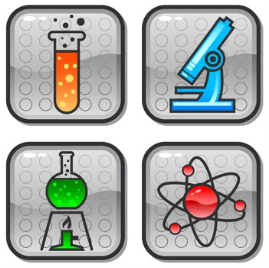 Anatoly Oleksandrov (1903—1994), another Ukrainian inventor and scientist, was working in the field of nuclear physics. He was born in the village of Tarashcha not far from Kyiv. Anatoly Oleksandrov took part in the creation of nuclear technology. Under his supervision the first in the world atomic-powered vessel was created.
Anatoly Oleksandrov (1903—1994), another Ukrainian inventor and scientist, was working in the field of nuclear physics. He was born in the village of Tarashcha not far from Kyiv. Anatoly Oleksandrov took part in the creation of nuclear technology. Under his supervision the first in the world atomic-powered vessel was created.
Serhiy Koroliov (1907—1966) was born in the city of Zhytomyr. He was an outstanding, creator of the practical space engineering. In 1924 he finished a professional technical school in Odesa. In 1924—1926 he studied in Kyiv Politechnic Institute. In 1930 he graduated from Moscow higher technical school and at the same time he finished Moscow pilot, school.
Under his supervision new rockets were designed and launched. Among them were ballistic and geographical rockets, rockets-carriers and spacecraft "Vostok" and "Voskhod", the first automatic interplanet station "Zond". The spacecraft designed under his guidance made real the flights to Venus and Mars and walking in the outer space.
Yevhen Paton was born in 1870 in a French town Nizza. Paton was an outstanding constructor and a scientist. Since 1929 Paton was the member of the Ukrainian Academy of Sciences. He graduated from the Polytechnical Institute of Dresden in 1894 and St Petersburg Institute of Civil Engineers in 1896. In 1904—1939 Paton was the professor of Kyiv Polytechnical Institute.Heading the laboratory of testing the bridges, he formulated the main scientific principles and discovered the scientific technology of testing the bridges.
In 1896—1929 he constructed 35 bridges, among them the main bridge across the Dnieper in Kyiv. Now this bridge bears his name. In 1929 Paton organized the laboratory of electric welding, which became an institute in 1934. Yevhen Paton died in 1953 in Kyiv.

- benefit — користь
- vessel — судно,корабель
- nuclear —ядерний
- to launch —запускати
- supervision — керівництво, нагляд
- guidance — керівництво
- constructor— будівник
- civil — цивільний
- todiscover — відкривати
- electric welding— електрозварювання
- to bear — носити
- polytechnical — політехнічний

1. Where and when was Yevhen Paton born?
2. What was he?
3. What can you tell about Yevhen Paton?
4. What laboratory did he organize in 1929?
5. What are his main contributions to the Ukrainian science?
ENGLAND
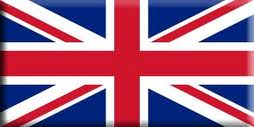
![]() England is the largest and the richest country of Great Britain. The capital of England is London but there are other large industrial cities, such as Birmingham, Liverpool, Manchester and other famous and interesting cities such as York, Chester, Oxford and Cambridge. Stonehenge is one of the most famous prehistoric places in the world. This ancient circle of stones stands in Southwest England. It measures 80 metres across and made with massive blocks of stone up to four metres high. Why it was built is a mystery.
England is the largest and the richest country of Great Britain. The capital of England is London but there are other large industrial cities, such as Birmingham, Liverpool, Manchester and other famous and interesting cities such as York, Chester, Oxford and Cambridge. Stonehenge is one of the most famous prehistoric places in the world. This ancient circle of stones stands in Southwest England. It measures 80 metres across and made with massive blocks of stone up to four metres high. Why it was built is a mystery.
Not far from Stonehenge stands Salisbury Cathedral. It is a splendid example of an English Gothic Cathedral; inside there is one of four copies of Magna Charta and the oldest clock in England. Chester is very important town in the north-west of England. In the past it used to be a Roman fort; its name comes from the Latin word castra, meaning "fortified camp". In Chester there is a famous museum which contains over 5000 ancient and modern toys.
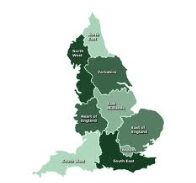 Oxford is the home of the oldest university of England. The most famous college is Christ Church. It has a great hall which was built during the reign of Henry VIII and its chapel has become the Cathedral of Oxford. Cambridge is the home of Britain's second oldest university. York was the capital of Northern England. It is one of the best preserved medieval cities of Europe. It was built by Romans, conquered by Anglo-Saxons and ruled by the Vikings. Birmingham is often called the "City of 1,500 trades" because of the great variety of its industries.
Oxford is the home of the oldest university of England. The most famous college is Christ Church. It has a great hall which was built during the reign of Henry VIII and its chapel has become the Cathedral of Oxford. Cambridge is the home of Britain's second oldest university. York was the capital of Northern England. It is one of the best preserved medieval cities of Europe. It was built by Romans, conquered by Anglo-Saxons and ruled by the Vikings. Birmingham is often called the "City of 1,500 trades" because of the great variety of its industries.

- famous - відомий
- to measure - вимірювати
- cathedral - собор
- fort - форт
- camp - табір
- medieval - середньовічний
- conquered - завойований
- college –коледж

1. What are large industrial cities of England?
2. What is one of the most famous prehistoric place in the world?
3. Where are the oldest clock in England and a copy of Magna Charta now?
4. What is Chester interesting for?
5. What are two oldest universities in England?
6. What was the capital of Northern England?
7. Why is Birmingham called the "City of 1,500 trades"?
THE WEATHER IN ENGLAND
![]() The weather in England is very changeable. A fine morning can change into a wet afternoon, and a nasty morning can change into a fine afternoon. That is why it is natural for the English to use the comparison "as changeable as the weather" of a person who often changes his mood or opinion about something. "Other countries have a climate; in England we have weather". This statement is often made by the English to describe the meteorological conditions of their country.
The weather in England is very changeable. A fine morning can change into a wet afternoon, and a nasty morning can change into a fine afternoon. That is why it is natural for the English to use the comparison "as changeable as the weather" of a person who often changes his mood or opinion about something. "Other countries have a climate; in England we have weather". This statement is often made by the English to describe the meteorological conditions of their country.
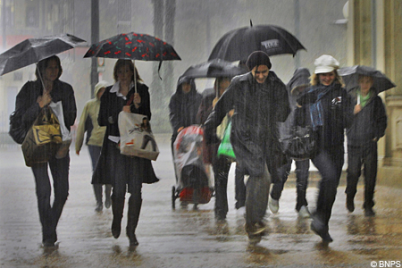 The English also say that they have three variants of weather: when it rains in the morning, when it rains in the afternoon or when it rains all day long.
The English also say that they have three variants of weather: when it rains in the morning, when it rains in the afternoon or when it rains all day long.
The weather is the favourite conversational topic in England. When two Englishmen meet, their first words will be "How are you?" And after the reply "Very well, thank you; how are you?" the next remark is almost certain to be about the weather. When they go abroad the English often surprise people of other nationalities by this tendency to talk about the weather, a topic of conversation that other people do not find so interesting.
The best time of the year in England is spring (of course, it rains in spring too). The two worst months in Britain are January and February. They are cold, damp and unpleasant. The best place in the world then is at home by the fire.
Summer months are rather cold and there a lot of rainy days. So most people, who look forward to summer holidays, plan to go abroad for the summer, to France or somewhere on the Continent.
The most unpleasant aspects of the weather in England are fog and smog.

- changeable ['tʃeɪndʒəbl] — мінливий; непостійний; несталий
- wet [wet] — сирий, мокрий
- nasty ['na:stɪ] — мерзенний; огидний; неприємний
- comparison [kəm'pærɪsn] — порівняння
- remark [rɪ'ma:k] — зауваження; примітка; помітка
- fire ['fаɪə]— камін
- to look forward ['fɔ:wəd] to — із нетерпінням очікувати (чогось)
- fog [fog] — густий туман
- smog (smoke + fog) [smɔg] — смог, туман з димом

1. The weather in England is very changeable, isn't it?
2. What comparison do the English use when they want to describe a person whose mood and opinion changes very often ?
3. WImt statement is often made by the English to describe the meteorological conditions of their country?
4. How often does it rain in England?
5. The weather is the favourite conversational topic in England, isn't it? Do you find this topic of conversation interesting?
6. What is the best time of the year in England?
7. What do you know about London fogs ?
8. Wlrat kind of weather do you like best of all?
9. Where do you get the weather forecast from? Do you always believe it?
NATIONAL EMBLEMS OF UNITED KINGDOM
![]() The United Kingdom (abbreviated from "The United Kingdom of Great Britain and Northern Ireland") is the political name of the country which consists of England, Scotland, Wales and Northern Ireland (sometimes known as Ulster).
The United Kingdom (abbreviated from "The United Kingdom of Great Britain and Northern Ireland") is the political name of the country which consists of England, Scotland, Wales and Northern Ireland (sometimes known as Ulster).
Great Britain is the name of the island which is made up of England, Scotland, Wales, whereas the British Isles is the geographical name of all the islands off the north-west coast of the European continent. In everyday speech "Britain" is used to mean the United Kingdom.
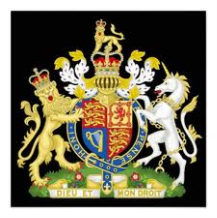 The flag of the United Kingdom, known as the Union Jack, is made up of three crosses. The upright red cross on a white background is the cross of the 1st George, the patron saint of England. The white diagonal cross on a blue background is the cross of St. Andrew, the patron saint of Scotland, The red diagonal cross on a white background is the cross of St. Patrick, the patron saint of Ireland.
The flag of the United Kingdom, known as the Union Jack, is made up of three crosses. The upright red cross on a white background is the cross of the 1st George, the patron saint of England. The white diagonal cross on a blue background is the cross of St. Andrew, the patron saint of Scotland, The red diagonal cross on a white background is the cross of St. Patrick, the patron saint of Ireland.
The Welsh flag, called the Welsh dragon, represents a red dragon on a white and green background.
St. George's Day falls on 23 April and is regarded as England's national day. On this day some patriotic Englishmen wear a rose pinned to their jackets'. A red rose is the national emblem of England from the time of the Wars of the Roses (15th century).
St. Andrew's Day (the 30th of November) is regarded as Scotland's national day. On this day some Scotsmen wear a thistle in their buttonhole. As a national emblem of Scotland, thistle apparently first used in the 15th century as a symbol of defence. The Order of the Thistle is one of the highest orders of knighthood. It was founded in 1687, and is mainly given to Scottish noblemen (limited to 16 in number).
St. Patrick's Day (the 17th of March) is considered as a national day in Northern Ireland and an official bank holiday there. The national emblem of Ireland is shamrock. According to legend, it was the plant chosen by St. Patrick to illustrate the Christian doctrine of the Trinity to the Irish.
St. David's Day (the 1st of March) is the church festival of St. David, a 6th-century monk and bishop, the patron saint of Wales. The day is regarded as the national holiday of Wales, although it is not an official bank holiday.
On this day, however, many Welshmen wear either a yellow daffodil or a leek pinned to their jackets, as both plants are traditionally regarded as national emblems of Wales.
In the Royal Arms three lions symbolize England, a lion rampant — Scotland, and a harp — Ireland. The whole is encircled and is supported by a lion and a unicorn. The lion has been used as a symbol of national strength and of the British monarchy for many centuries. The unicorn, a mythical animal that looks like a horse with a long straight horn, has appeared on the Scottish and British royal coats of arms for many centuries, and is a symbol of purity.

- everyday speech — повсякденна мова
- background — підстава
- patron saint — святий покровитель
- pin — приколювати шпилькою
- knighthood — лицарське достоїнство
- noble man — дворянин
- bank holiday — велике свято
- shamrock — трилисник
- church festival — церковне свято
- monk — монах
- bishop — єпископ
- daffodil — нарцис
- rampant — стоячий на задніх лапах
- unicorn — єдиноріг
- coats of arms — герб
- purity — чистота

1. What does the word "Britain" mean in everyday speech?
2. What is the flag of the United Kingdom made up of?
3. How is the Welsh flag called?
4. What do some Englishmen wear on St. George's Day?
5. What day is regarded as Scotland's national day?
6. What day is a national day in Northern Ireland?
7. What do three lions in the Royal Arms symbolize?
8. What does the unicorn symbolize?
LONDON, CAPITAL OF GREAT BRITAIN
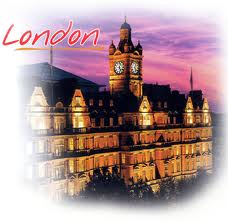
![]() London is the capital of Great Britain, its political, economic, and commercial centre. It is one of the largest cities in the world and the largest city in Europe. Its population is about 8 million.
London is the capital of Great Britain, its political, economic, and commercial centre. It is one of the largest cities in the world and the largest city in Europe. Its population is about 8 million.
London is divided into several parts: the City, Westminster, the West End, and the East End.
The heart of London is the City, its financial and business centre. Numerous banks, offices, and firms are situated there, including the Bank of England, the Stock Exchange, and the Old Bailey. Few people live here, but over a million people come to the City to work. There are some famous ancient buildings within the City. Perhaps the most striking of them is the St. Paul's Cathedral, the greatest of English churches. It was built in the 17th century by Sir Christopher Wren. The Tower of London was founded by Julius Caesar and in 1066 rebuilt by William the Conqueror. It was used as a fortress, a royal palace, and a prison. Now it is a museum.
 Westminster is the governmental part of London.
Westminster is the governmental part of London.
Nearly all English kings and queens have been crowned in Westminster Abbey. Many outstanding statesmen, scientists, writers, poets, and painters are buried here: Newton, Darwin, Chaucer, Dickens, Tennyson, Kipling, etc.
Across the road from Westminster Abbey is Westminster Palace, the seat of the British Parliament. The Clock Tower of the Houses of Parliament is famous for its big bell, known as "Big Ben". Buckingham Palace is the official residence of the Queen.
The West End is the richest and most beautiful part of London. It is the symbol of wealth and luxury. The best hotels, shops, restaurants, clubs, and theatres are situated there.
The Trafalgar Square is the geographical centre of London. It was named in memory of Admiral Nelson's victory in the battle of Trafalgar in 1805. The tall Nelson's Column stands in the middle of the square.
On the north side of the Trafalgar Square is the National Portrait Gallery. Not far away is the British Museum — the biggest museum in London. It contains a priceless collection of ancient manuscripts, coins, sculptures, etc, and is also famous for its library.
There are a lot of factories, workshops, and docks in the East End.

- numerous — численний
- ancient — древній, стародавній
- striking — разючий, чудовий
- to found — засновувати
- fortress — фортеця
- royal — королівский
- to crown — коронувати
- outstanding — видатний
- statesman — державний діяч
- to bury — ховати
- tower — вежа
- official residence — офіційна резиденція
- wealth — багатство
- luxury — розкіш
- in memory of— назгадкупро
- to contain — вміщувати
- priceless — безцінний

1. Is London the largest city in the world?
2. What's the population of London?
3. Traditionally London is divided into four parts. Can you name them?
4. What do you know about the City?
5. Who was the St. Paul's Cathedral built by?
6. Who founded the Tower of London? When was it rebuilt?
7. What is the governmental part of London?
8. What building has more historic associations than any other building in London?
9. What is Big Ben?
10. Can you describe the Trafalgar Square?
11. Where do the working people of London live?
12. What are the most famous London museums and art galleries?
LIFE OF YOUTH IN BRITAIN
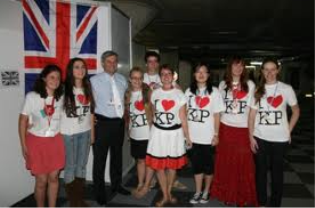
![]() Young people from all walks of life are united according to their interests by the established youth organizations in Britain. These organizations develop because of the contribution of both full-time and part-time youth workers and a great number of volunteers.
Young people from all walks of life are united according to their interests by the established youth organizations in Britain. These organizations develop because of the contribution of both full-time and part-time youth workers and a great number of volunteers.
Outdoor pursuits involve anything from pony trekking to rock-climbing or canoeing and help young people go out from the confines of their home or their environment. Such pursuits nourish a spirit of self-reliance and help realize the importance of team-work under a good leadership. All the major youth organizations hold outdoor pursuits either by organizing special residential courses or by sending their members to take part in established courses or seminars in other cities and countries.
Local authorities and a number of multipurpose youth organizations provide the place for such activities as canoeing, sailing, rock-climbing, map reading, orienteering and cooking for survival; all of them encourage initiative and self-discipline.
Among providers of outdoor places are the Sports Council, the Outward-Bound Trust, the Ocean Youth Club, the Sail Training Association, and the Nautical Training Corps.
The Outward-Bound Trust is the longest established and most experienced organization in Britain based on outdoor pursuits, personal development, and training. It has five centres in the English Lake District, Wales, and Scotland. It operates in 38 other countries of the world. It has centres in Belgium, France, Germany, and the Netherlands. This organization is based on two simple principles: firstly, that everyone is capable of achieving more than he might imagine, and, secondly, that too few people have a real appreciation of what can be achieved by team-work and mutual support.
Young people participate in 'expedition courses' lasting 8, 12, or 20 days and involving adventurous journeys by land or sea. There are also 'specialist courses' for young people aged 17 and over to become involved in work with such groups as the homeless, the elderly, and the disabled.

- from all walks of life — усіхпрошарківсуспільства
- outdoor pursuits — заняття на відкритому повітрі
- to nourish —сприяти появі
- self-reliance — упевненість у своїх силах
- multipurpose — багатопрофільний
- to provide — надавати, забезпечувати
- sailing — вітрильний спорт
- outward-bound — уходящий у плавання за кордон, мандрівник,
- mutual support — взаємна підтримка
- adventurous — повний пригод
- disabled — непрацездатний, покалічений, інвалід

1. What organizations in Britain unite young people according to their interests?
2. What do outdoor pursuits involve?
3. What do local authorities and a number of multipurpose youth organizations provide?
4. What organizations are among providers of outdoor places?
5. What do you know about the Outward-Bound Trust?
6. How many centres does it have?
7. Where are these centres situated?
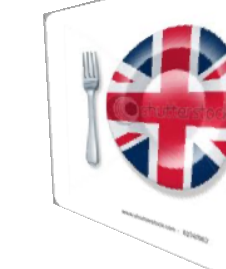
![]() Some people criticize English food. They say it's unimaginable, boring, tasteless, it's chips with everything and totally overcooked vegetables. The basic ingredients, when fresh, are so full of flavour that British haven't had to invent sauces to disguise their natural taste. What can compare with fresh pees or new potatoes just boiled and served with butter? Why drown spring lamb in wine or cream and spices, when with just one or two herbs it is absolutely delicious?
Some people criticize English food. They say it's unimaginable, boring, tasteless, it's chips with everything and totally overcooked vegetables. The basic ingredients, when fresh, are so full of flavour that British haven't had to invent sauces to disguise their natural taste. What can compare with fresh pees or new potatoes just boiled and served with butter? Why drown spring lamb in wine or cream and spices, when with just one or two herbs it is absolutely delicious?
If you ask foreigners to name some typically English dishes, they will probably say "Fish and chips" then stop. It is disappointing, but true that, there is no tradition in England of eating in restaurants, because the food doesn't lend itself to such preparation. English cooking is found at home. So it is difficult to a good English restaurant with a reasonable prices.
In most cities in Britain you'll find Indian, Chinese, French and Italian restaurants. In London you'll also find Indonesian, Mexican, Greek... Cynics will say that this is because English have no "cuisine" themselves, but this is not quite the true.

- to criticize - критикувати
- tasteless - несмачний
- overcooked - переварений
- ingredient - ингридєнт, складова частина
- to invent - винаходити
- sauces - соус
- to disguise - сховати
- spice - спеції, прянощі
- herb - трава
- delicious –дуже смачний
- disappointing - кривдно
- to lend - позичати
- cuisine – кухня

1. What do foreigners say when they criticize English food?
2. Do English people use a lot of sauces?
3. From a foreigner's point of view, what typically English dishes?
4. Do all English eat in restaurants?
5. What kind of restaurants can you find in Britain?
6. Is it the true that English have no cuisine?
ENGLISH MEALS
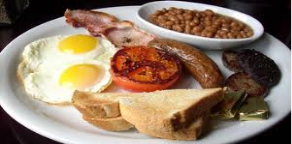
![]() The English proverb says: every cook praises his own broth. One can not say English cookery is bad, but there is not a lot of variety in it in comparison with European cuisine. The English are very particular about their meals. The usual meals in England are breakfast, lunch, tea and dinner.
The English proverb says: every cook praises his own broth. One can not say English cookery is bad, but there is not a lot of variety in it in comparison with European cuisine. The English are very particular about their meals. The usual meals in England are breakfast, lunch, tea and dinner.
Breakfast time is between seven and nine a.m. A traditional English breakfast is a very big meal. It consists of juice, porridge, a rasher or two of bacon and eggs, toast, butter, jam or marmalade, tea or coffee. Marmalade is made from oranges and jam is made from other fruit. Many people like to begin with porridge with milk or cream and sugar, but no good Scotsman ever puts sugar on it, because Scotland is the home of porridge. For a change you can have sausages, tomatoes, mushrooms, cold ham or perhaps fish.
But nowadays in spite of the fact that the English strictly keep to their meals many people just have cereal with milk and sugar or toast with jam or honey.
The two substantial meals of the day are lunch and dinner. Lunch is usually taken at one o'clock. For many people lunch is a quick meal. Office workers usually go to a cafe at this time. They take fish, poultry or cold meat (beef, mutton, veal and ham), boiled or fried potatoes and all sorts of salad. They may have a mutton chop or steak and chips, followed by biscuits and a cup of coffee. Some people like a glass of light beer with lunch. Pubs also serve good, cheap food. School children can have a hot meal at school. Some of them just bring a snack from home.
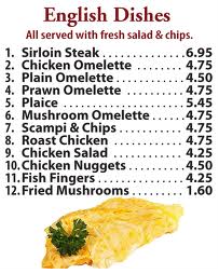 Tea is very popular among the English; it may almost be called their national drink. Tea is welcome in the morning, in the afternoon and in the evening. The English like it strong and fresh made. The English put one tea-spoonful of tea for each person. Tea means two things. It is a drink and a meal. Some people have afternoon tea, so called «high tea» with sandwiches, tomatoes and salad, a tin of apricots, pears or pineapples and cakes, and, of course a cup of tea. That is what they call good tea. It is a substantial meal.
Tea is very popular among the English; it may almost be called their national drink. Tea is welcome in the morning, in the afternoon and in the evening. The English like it strong and fresh made. The English put one tea-spoonful of tea for each person. Tea means two things. It is a drink and a meal. Some people have afternoon tea, so called «high tea» with sandwiches, tomatoes and salad, a tin of apricots, pears or pineapples and cakes, and, of course a cup of tea. That is what they call good tea. It is a substantial meal.
Cream teas are also popular. Many visitors, who come to Britain, find English instant coffee disgusting. Dinner time is generally between six and eight p.m. The evening meal is the biggest and the main meal of the day. Very often the whole family eats together. They begin with soup, followed by fish, roast chicken, potatoes and vegetables, fruit and coffee.
On Sundays many families have a traditional lunch consisting of roast chicken, lamb or beef with salads, vegetables and gravy.
The British enjoy tasting delicious food from other countries, for example, French, Italian, Indian and Chinese food. Modern people are so busy that they do not have a lot of time for cooking themselves. So, the British buy the food at the restaurant and bring it home already prepared to eat. So we can conclude that take-away meals are rather popular among the population. Eating has become rather international in Britain lately.

- proverb — прислів'я, приказка
- Every cook praises his own broth —кожний кухар хвалить свій власний бульйон
- cookery — кулінарія; готування
- variety — різноманіття
- cuisine — кухня, стіл
- particular — рідкий, особливий, специфічний
- lunch — обід, ланч
- porridge — (овсяна) каша
- rasher — тонкий клаптик бекону (для поджарювання)
- sausage — ковбаса, сосиска
- mushroom — гриб
- in spite of — незважаючи на
- strictly — пильно, уважно
- cereal —крупа, крупяний продукт
- honey — мед
- substantial — живильний
- poultry — домашня птиця
- beef — яловичина
- mutton — баранина
- veal — телятина
- ham — шинка, окорок
- boiled — кип'ячений, варений
- fried — смажений
- chop — невеликий шматок м'яса, відбивна (котлета)
- steak — біфштекс, шматок м'яса/риби (для смаження)
- cheap — дешевий, недорогий
- snack — легка закуска
- tea-spoonful — ціла чайна ложка
- tin — бляшана консервна банка; бляшанка
- apricot — абрикос
- pear — груша
- pineapple — ананас
- instant coffee — розчинний кава
- disgusting — огидний, поганий, противний
- roast - печеня; смажений
- lamb — м'ясо молодого баранчика
- gravy — підлива (із соку печені), соус
- delicious — чудовий, чарівний; дуже смачний
- to conclude — зробити висновок, підсумувати щось

1. What are the usual meals in England?
2. What time do they have breakfast?
3. What is a traditional English breakfast?
4. What are the two substantial meals of the day?
5. When is lunch usually taken?
6. What does lunch include?
7. Is tea popular among the English?
8. When do they usually have dinner?
9. Do the British enjoy tasting delicious food from other countries?
CUSTOMS AND TRADITIONS IN GREAT BRITAIN
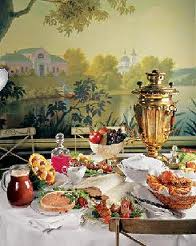
![]() I am going to tell you about English customs and traditions. First of all, it concerns United Kingdom political system. In Great Britain there is no written constitution, only customs, traditions and precedents. After the English Revolution of Great Britain is a constitutional monarchy headed by King (now Queen, Elizabeth the second). Traditionally the Queen acts only on the advice of her Ministers. She reigns but she does not rule.
I am going to tell you about English customs and traditions. First of all, it concerns United Kingdom political system. In Great Britain there is no written constitution, only customs, traditions and precedents. After the English Revolution of Great Britain is a constitutional monarchy headed by King (now Queen, Elizabeth the second). Traditionally the Queen acts only on the advice of her Ministers. She reigns but she does not rule.
Englishmen have traditions not only in political, but in social life. For example, London, the capital of England, is traditionally divided into three parts: the West End, the East end, and the City. The City is a historical, financial and business center of London. The East End is the district inhabited by the workers, and the West End is a fashionable shopping and entertaining center. English people like to spend their free time in numerous pubs where they can have a glass of beer and talk about different things with their friends.
The English are traditional about their meals. They eat eggs and bacon with toasts for breakfast, pudding or apple pie for dessert. Every English family has five o'clock tea. A typical feature of an English house is a fireplace, even when there is central heating in the house.
English people like domestic animals. Every family has a pet: a dog, a cat or a bird.Politeness is a characteristic feature of Englishmen. They often say "Thank you", "Sorry", "Beg your pardon". Russian people, I think, have to learn this good custom.
Englishmen have many traditional holidays, such as Christmas, St.Valentine's Day, Mother's day, Easter and others.
TRANSPORT IN BRITAIN
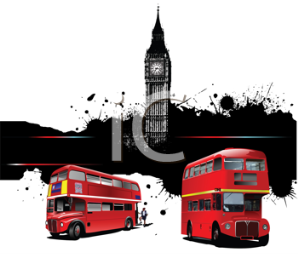
![]() You can reach England either by plane, by train, by car or by ship. The fastest way is by plane. London has three international airports: Heathrow, the largest, connected to the city by underground; Gatwick, south of London, with a frequent train service; Luton, the smallest, used for charter flights.
You can reach England either by plane, by train, by car or by ship. The fastest way is by plane. London has three international airports: Heathrow, the largest, connected to the city by underground; Gatwick, south of London, with a frequent train service; Luton, the smallest, used for charter flights.
If you go to England by train or by car you have to cross the Channel. There is a frequent service of steamers and ferryboats which connect the continent to the south-east of England.
People in Britain drive on the left and generally overtake on the right. The speed limit is 30 miles per hour (50 km/h) in towns and cities and 70 m.p.h. (110 km/h) on motorways.
When you are in London you can choose from four different means of transport: bus, train, underground or taxi. The typical bus in London is a red double-decker. The first London bus started running between Paddington and the City in 1829. It carried 40 passengers and cost a shilling for six kms.
The next to arrive were the trains; now there are twelve railway stations in London. The world's first underground line was opened between Baker St. and the City in 1863. Now there are ten underground lines and 273 underground stations in use. The London underground is also called the Tube, because of the circular shape of its deep tunnels.

- to reach — досягати
- underground — метро
- charter flight — чартерний рейс
- steamer — пароплав
- ferry-boat — паром
- to overtake — обганяти
- shilling — шилінг
- shape — форма

1. What is the fastest way of traveling?
2. How many airports are there in London?
3. What kind of service helps to cross the Channel?
4. What are some "rules" of driving in Britain?
5. What does typical bus in London look like?
6. Where was the first underground opened?
7. Why is London underground called the Tube?
MY SUMMER HOLIDAYS
![]() After my hard and busy school year my summer holidays began. I felt happy and began to plan a lot of wonderful things to do during my summer vocation.
After my hard and busy school year my summer holidays began. I felt happy and began to plan a lot of wonderful things to do during my summer vocation.
I was dreaming about far South countries I always wanted to visit. For example I dreamed to visit, Greece islands or Singapore beaches. But I had to go to the Azove seaside with my relatives. The water was very warm there because you know Azove Sea isn’t deep. There were a lot of beautiful fair trees and bushes there. There were different kinds of entertainments there. Some kinds of water Mountains and water scooters and discos.
There was nothing to do all day except lying in the sun and get a wonderful tan. I was playing with my little sister on the sand and in the waves teaching her to swim. Later on I returned to Kherson and spend some time in town going out with my friends, reading, listening to music, watching TV, playing computer games. After that I went to the sports camp where I spent seven days with my friends.
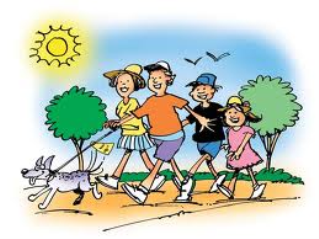 It was very useful experience for us because we had to get up very early, to train a lot, and to rest very little. But it made us stronger and healthier.
It was very useful experience for us because we had to get up very early, to train a lot, and to rest very little. But it made us stronger and healthier.
I was very happy to return home and to spend several days in my summer cottage, I helped my grand-pa to dig the garden, to water plants, and to gather fruits and vegetables. I was fishing with my grand-pa sometime successfully and we were cooking our fish together. Only humorous insects were spoiling my good humor. I was enjoying floating in the boat swimming in the river and helping my grandparents.
During my summer holidays I made many new friends, read a lot of interesting books.
Got to know a lot of useful things. Now I feel ready to get back to school.
I am happy to meet my friends and teachers.
1

про публікацію авторської розробки
Додати розробку
